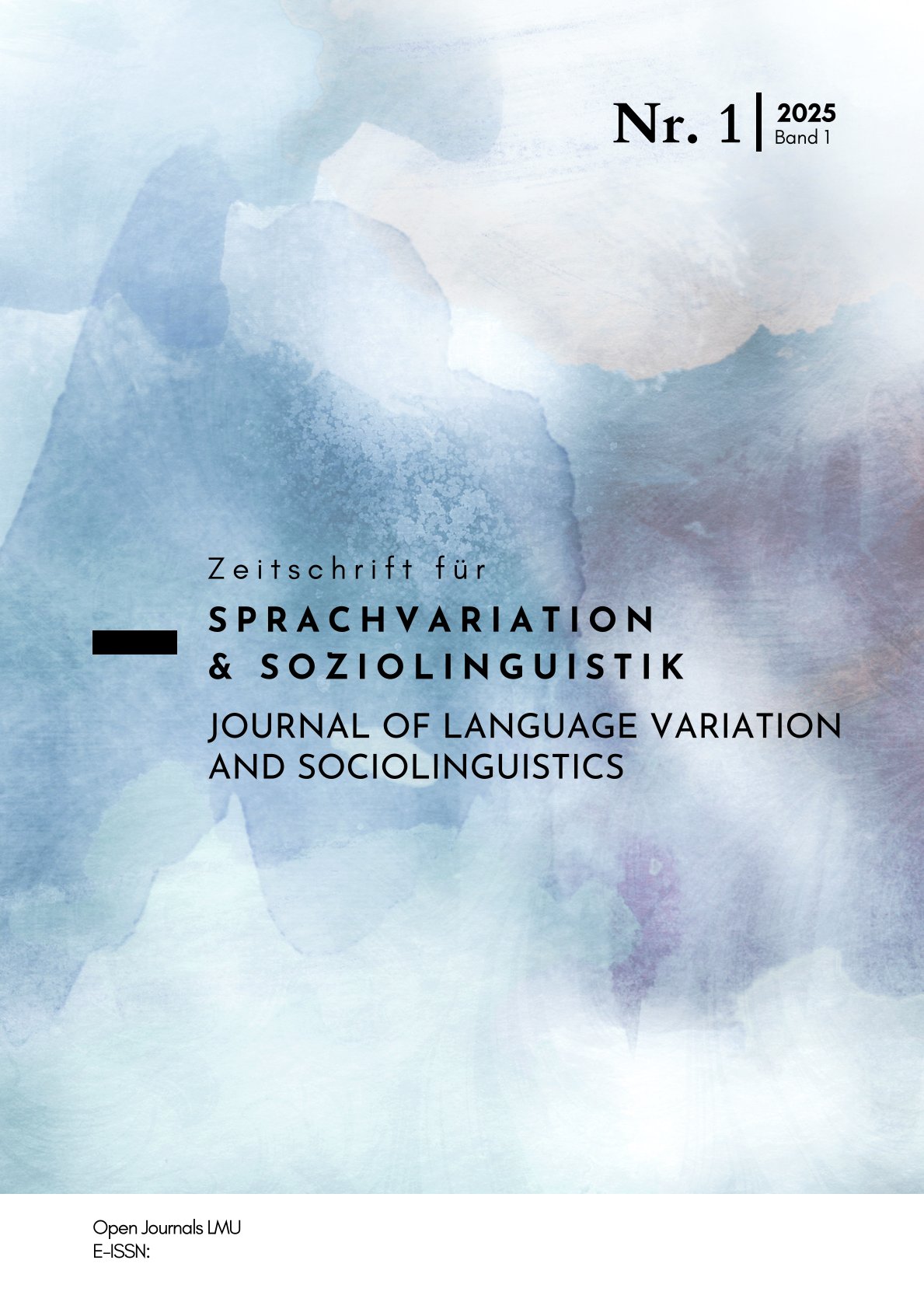Regional and social influences on pragmatic variation in colloquial German
DOI:
https://doi.org/10.5282/jlvs/9
Abstract
The present study investigates how ordinal generalized additive mixed-effects models (GAMMs) can be employed in order to model regional and social influences on pragmatic variation in German. We analyze (pro)nominal address (e.g., Frau Müller, Lisa; du, Sie) and the socio-contextually conditioned usage thereof (i.e., supervisor to employee, co-worker to co-worker, informal setting) on the basis of seven variables collected in the Atlas zur deutschen Alltagssprache ‘Atlas of Colloquial German’. Specifically, we address whether social variables (i.e., age, gender, and residential mobility) impact on pragmatic variation in colloquial German and also whether this social variation may be regionally constrained. We found pronounced regional effects in the distributions of the seven pragmatic variables, and these distributions of the pragmatic variants did not conform to national boundaries. We also identified strong age and gender effects on pragmatic variation, but the strength of these effects did not vary regionally. Implications for the application of (ordinal) GAMMs to the integrative investigation of regional and social patterns on language variation are discussed.